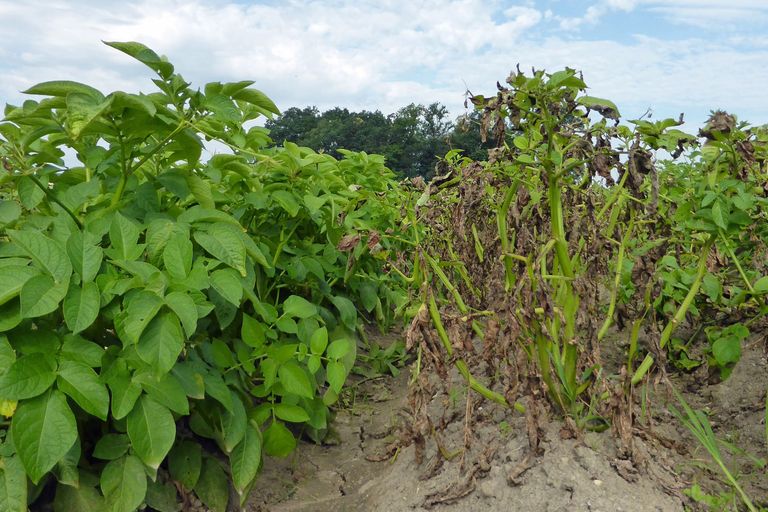Factsheet «New plant breeding techniques for Swiss agriculture – significant potential, uncertain future»
The genetic makeup of plants can be modified precisely by means of new breeding techniques. Typically, these changes could also occur naturally and, in the process, no genetic material that is unrelated to the species remains in the plant. The techniques significantly broaden the possibilities for plant breeding, thereby potentially helping to make Swiss agriculture more environmentally friendly, economically viable and ultimately more sustainable.1 As some varieties developed by using the new breeding techniques already exist and new ones are expected to follow shortly, it is imperative to determine whether or not plants engineered by means of these new techniques are subject to the Gene Technology Act. From a natural scientific point of view, there is no reason for a strict regulation of plants bred in this fashion.
Source: Swiss Academies of Sciences (2016) New plant breeding techniques for Swiss agriculture – significant potential, uncertain future. Swiss Academies Factsheets 11 (4).
Swiss Academies Factsheets
- The New Global Connect: Mega-Infrastructure Projects and Their Local Impacts
- Physics in Switzerland – driving economy, triggering innovation, empowering citizens
- Faktenblatt «Wertvolles Geoland Schweiz»
- What Switzerland can do for biodiversity
- Making landscape services tangible
- Insektenvielfalt in der Schweiz
- Tackling climate change and biodiversity loss jointly
- Pestizide: Auswirkungen auf Umwelt, Biodiversität und Ökosystemleistungen
- Achieving the SDGs with Biodiversity
- Übermässige Stickstoff- und Phosphoreinträge schädigen Biodiversität, Wald und Gewässer
- Biodiversity damaging subsidies in Switzerland
- How can local populations be won over to protected areas?
- Gene drives: benefits, risks, and possible applications
- Plant breeding – from cross breeding to genome editing
- Small state, big companies
- Variety is the source of life
- Instrumente für eine wirksame und effiziente Klima- und Energiepolitik
- Chancen und Auswirkungen einer CO2-Lenkungsabgabe auf Treibstoffe
- Biodiversity, a guarantee of health?
- Open Science in Switzerland: Opportunities and Challenges
- Nationale Bedeutung naturwissenschaftlicher Sammlungen der Schweiz
- Governance of regional development
- Reverse emissions or influence solar radiation: Is “geoengineering” worthwhile, feasible and if so, at what price?
- Wildlife and humans in outdoor recreational areas near cities
- New approaches for protecting potatoes against late blight
- Wasser in der Schweiz
- Spotlight on climate in Switzerland
- Outdoor Sports Infrastructure Planning – Hiking and Mountain Biking
- Ozon und Sommersmog: Klimawandel gefährdet heutige Erfolge
- Factsheet «New plant breeding techniques for Swiss agriculture – significant potential, uncertain future»
- Energiestrategie und Gesundheit: Was bei der Umsetzung der Energiestrategie zu beachten ist
- Making the Commodity Sector Work for Developing Countries - Local Impacts, Global Links, and Knowledge Gaps
- Switzerland and the Commodities Trade - Taking Stock and Looking Ahead
- Health and global change in an interconnected world - Concerns and responsibilities for Switzerland
- Energiepolitik und Klimaschutz mit Luftreinhaltung verbinden
- Added value from tourism in Swiss parks
- A Focus on fracking
- Bienen und andere Bestäuber: Bedeutung für Landwirtschaft und Biodiversität (2014)
- Genetically modified crops and their importance for Swiss agriculture
- Environmental changes and migration in developing countries
- Die Verbuschung des Alpenraums durch die Grünerle
- Food security for a planet under pressure – and the challenges for Switzerland
- Mountains, a priority for a planet under pressure and for Switzerland
- Water security for a planet under pressure – and the consequences for Switzerland
- Biodiversität und Ökosystemleistungen auf globaler Ebene und in der Schweiz (2012)



